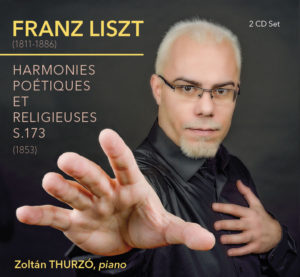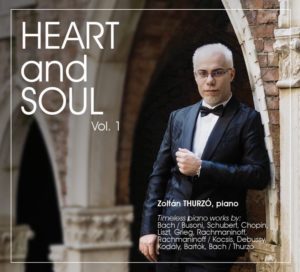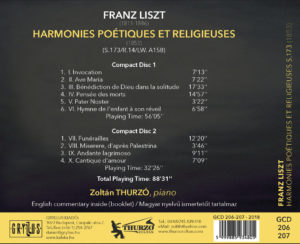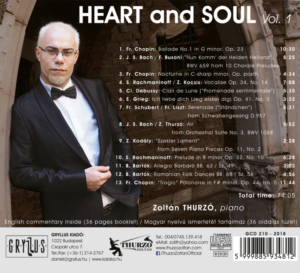Time spent by composer Wenzel Pichl in Oradea
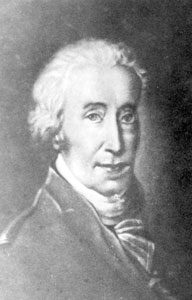 Pichl was born September 25th 1741, in Buchin in the proximity of the city of Tabor. In 1753, he was a soloist at the Jesuit seminary from Brezniki, following the tradition to which the talented children were recruited in a choir.
Pichl was born September 25th 1741, in Buchin in the proximity of the city of Tabor. In 1753, he was a soloist at the Jesuit seminary from Brezniki, following the tradition to which the talented children were recruited in a choir.
Jan Pokorny provides Pichl the basic skills.
After graduating high school, he continued his studies in Philosophy, Theology and Law at the University of Prague while practicing the violin at the seminar Saint Wencel.
In 1762, he became the first violinist of the Teinkirchen orchestra being the disciple of conductor Josef Segel, who taught him music theory and composing techniques. At the behest of director of Italian opera in Prague and the invitation of Bishop Ádám Patachich, he joins von Dittersdorf, becoming concert master and second bandmaster. He turns into Karl Ditters von Dittersdorf’s best friend. After the dissolution of the orchestra by dint of Episcopal denunciation sent to Queen Mary Theresa in 1764, Pichl returned to Prague where he offered his services to Count Ludwig Hartig. In 1771, Pichl travelled to Vienna and did his share of activities at the Court Theatre. In 1777, at the behest of Queen Mary Theresa, he received a job as a violinist and composer of chamber music in the orchestra of the Archduke Ferdinand, the governor of Lombardy and art lover, also. He remained ther for 20 years, fulfilling his life as a composer.
He wrote letters to Giovanni B. Martini whom he really idealized. P. Nardini dedicated the opera “Cento variocioni per il violino”, in 1779, he became a member of the Philharmonic Academy of Mantova, and in 1782, he was selected among musicians members of the Philharmonic Academy of Bologna. After the French occupation of Lombardy, in 1796, Pichl returned to Vienna. During the Milan refuge, many works and collections of documents were destroyed or lost, including his manuscripts regarding the work of Czech artists in Italy.
Classical music
He moves to Vienna and works as violinist and composer at the Court orchestra and from 1800 he is the conductor of Archduke Ferdinand’s orchestra. He composes many pieces of sacred music that has brought him success. He does his duty towards the native Czech Republic translating W. A. Mozart’s “Magic Flute”. His death occurred during a concert on January 23 1805, in the castle of Prince Lobkowitz Raudnitz.
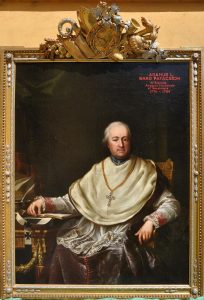 While he resided in Oradea, Pichl married a Hungarian young lady (named Somogyi) being wedded by Bishop Ádám Patachich. Patachich gladly accepted the task because earlier, he had failed to wed Dittersdorf and Kató Jurkovic.
While he resided in Oradea, Pichl married a Hungarian young lady (named Somogyi) being wedded by Bishop Ádám Patachich. Patachich gladly accepted the task because earlier, he had failed to wed Dittersdorf and Kató Jurkovic.
Pichl was a virtuoso violinist, as a musician and composer. Dittersdorf, Antonin Vranicky and Pichl became equivalent to a quality Viennese violin school. He was appreciated by his coevals. Vojtech Jírovec, whom Pichl met at Milan, called him one of the best composers in Europe. Dittersdorf shared the same opinion.
Pichl was highly educated and an efficient composer.
Pichl’s works
He left to posterity 700 works, among which are Changes (Imitations), Caprices, Fugue, Solo for violin, Duets for violin, and violin and viola, music for trio, 148 quartets for stringed instruments, for blowing instruments (these works were probably composed for Archduke Miklós Eszterházi, who also played the viola).
Works for the orchestra: 89 Symphonies, series of serenade, concertina, 30 instrumental concerts (among the concertos composed for clarinets, the concert composed for two clarinets should be noted, given that at that time, these pieces were not that popular), oratorios. He liked to compose melodies and songs, so his works included seven operas in Italian, German and French.
Popularity
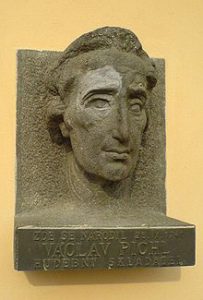 His popularity stood out because while he was alive his works were reproduced and even printed and distributed to the public. He dedicated most of his works noble personalities.
His popularity stood out because while he was alive his works were reproduced and even printed and distributed to the public. He dedicated most of his works noble personalities.
Most of his works were composed for violin, being useful for developing playing techniques, and also helping to master the Rode Studies or Bach’s Sonatas. Early in his career, he composed many pieces useful for learning how to play the violin. Haydn, Mozart’s classicism, French music, Czech folk music, the pastoral, in particular, left their mark on Pichl’s style. He brought breakthroughs in symphonies and the configuration of his sonatas. Regarding the instrumental works, these also provide exceptional technical solutions.
The golden age of music
Both Dittersdorf and Pichl arrived at Oradea in their youth, at the invitation of Bishop Patachich. Literally, the years spent in Oradea, between 1764 and 1769, witnessed the first trials and artistic successes for both musicians. Relying on the experience and effort gained in Oradea, the two were destined for outstanding careers.
It is obvious that before Haydn, Pichl and von Dittersdorf, Oradea has not lacked talented musicians to ensure the high level of ceremonies in churches according to the traditions of the time, however, for the development of music, that has began with Haydn and reached its peak with Dittersdorf, the generous support of humanist Ádám Patachich is needed.

